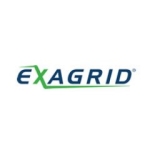What is our primary use case?
We primarily use the solution for a backup. Today, we are using Micro Focus Data Protector, which is a former HPE product, however, we are migrating Convault.
What is most valuable?
There are a few great features. Obviously, deduplication is a big one. There are the catalyst stores that we are using. It's a feature that does what we need it to do. We've been using the 5100 for quite some time with a lot of success and no issues. However, we were looking, at first, at expanding, however, we couldn't expand them anymore as they were at end of life. Now we are looking at the new generation, the latest, 5260.
It is easy to set up the product.
The solution is stable.
You can easily scale the solution.
What needs improvement?
I haven't come across any missing features.
One item I wanted to see is SSD drives as a cache. Data is taken in by the subsystem on SSD drives and as later on offloaded to spinning media. That was a feature that you could already see in primary storage, and that was, for a time, still lacking in StoreOnce, however, they have done it now. It's not available yet, however, it will be shortly.
For how long have I used the solution?
I, myself, worked for HPE for 34 years. Now, I'm working as an independent consultant. I'm working at a pharmaceutical company and they've been using it for four years.
What do I think about the stability of the solution?
It is an absolutely stable solution. We haven't had any issues. There are no bugs or glitches. It doesn't crash or freeze. it's reliable.
What do I think about the scalability of the solution?
The solution is definitely scalable, to the extent that we need it. For our purposes, it is definitely scalable enough. It's modular enough. You can add, with the 5260, 192 terabytes of raw capacity that you can extend one shelf at a time.
How are customer service and support?
Technical support is helpful, however, an advantage that I have is that I know the company inside out. I still have contact with my former colleagues there. They do their job. They are helpful and responsive.
How was the initial setup?
The solution is easy to set up. It's not complex or difficult. I'd rate it nine out of ten in terms of ease of implementation.
What's my experience with pricing, setup cost, and licensing?
I'm not into financials. I'm a technical guy. I just help with planning and designing a solution, and then others decide on pricing and configuration. I'm working as an external consultant, therefore, I don't have any decision-making there.
Which other solutions did I evaluate?
I don't have any practical experience with many other solutions. Coming out of HPE, going to work as an independent consultant in a company that is using a lot of HPE products, I'm obviously quite satisfied that they are using StoreOnce, and they will keep on using it.
What other advice do I have?
In terms of the version we are using, we have the StoreOnce 5100 and now we're looking at the StoreOnce 5260.
I'd recommend the solution to others. It has the features that we require and the features that, are required by a lot of companies that have a lot of data today. It's all about data. Data requirements are booming in the primary storage market and storage subsystems. Obviously, to be protected, you need to back up the data. And there, it does what it needs to do. There are petabytes of user data that you can store on a terabyte type back up to the disk subsystem.
That said, if you go to medium-sized companies or small-sized companies, probably there will be cheaper and smaller-scale options. For instance, the StoreOnce that we are using, are long connected, so they are accessed through the network, however, they're also connected through a SUMP, so a storage area network. That is something that you find mostly in the bigger companies that have the financial means to buy these types of subsystems. It would be depending on size and requirements. For bigger organizations, therefore, I would definitely advise they go for this product.
I would rate the product nine out of ten.
Disclosure: My company does not have a business relationship with this vendor other than being a customer.

















